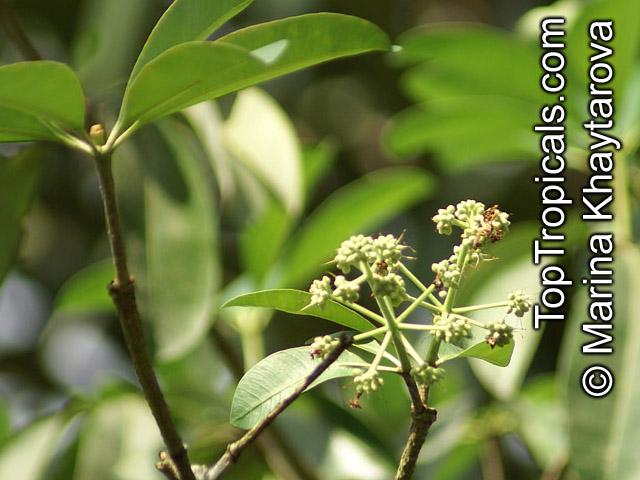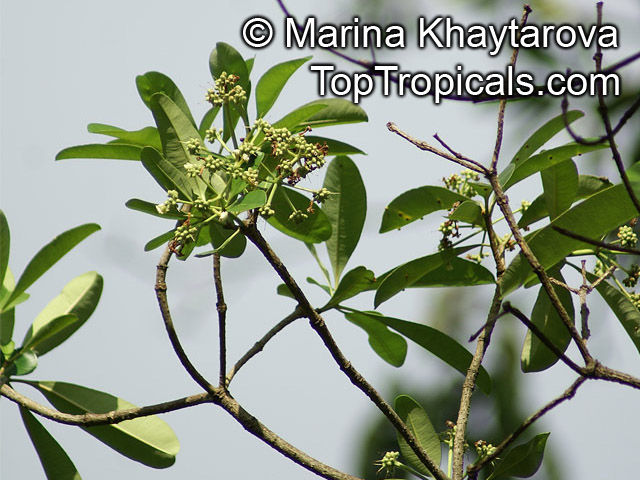Alstonia angustiloba (Pulai Tree)
Botanical name: Alstonia angustiloba
Common name: Pulai Tree
Family: Apocynaceae
Origin: Southeastern Asia










The Pulai Tree is a native to Southeastern Asia, and is widely cultivated in tropical and subtropical regions. It can grow to a big tree, typically taller than 20 feet, or a smaller tree, which is 10-20 feet in height. This hardwood evergreen tree prefers full sun or semi-shade and a soil that is evenly moist but can tolerate some drought. It also prefers an acidic soil with a pH of 5.5 to 6.5.
The Pulai Tree produces fragrant white or off-white flowers throughout the year, making it a popular ornamental plant in many regions. It attracts butterflies, hummingbirds, and other pollinators. An ethnomedical plant, it has various medicinal benefits. The latex is used against shingles, boils, abcesses, and ringworm and is an ingredient in chewing gum. The leaves and roots of the tree also possess antifungal and anti-inflammatory properties.
When grown in pots, the Pulai Tree needs regular and even watering and is best placed in a sheltered spot away from cold winds. In areas located in USDA Zones 9-11, the tree can be grown outdoors, otherwise it must be placed over winter in a protected location. However, it is important to note that the plant is potentially poisonous or toxic when taken internally, so it should be kept away from children. With regular care and maintenance, the Pulai Tree can bring year-round beauty and fragrance to any garden or home.

